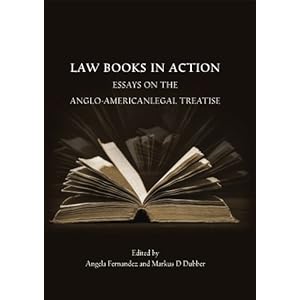On 26th February 1845 the British ship
HMS Wasp was patrolling off the coast of Africa, looking for ships that might be involved in the slave trade. A Brazilian ship called the
Felicidade was spotted, and the Wasp gave chase. The ship was captured, but proved to have no slaves on board, though it was fitted out for the slave trade and was clearly on its way to Africa for this purpose. A party of British sailors boarded the ship under the command of a Lieutenant Stupart.
While on board the
Felicidade, a second ship named the
Echo was spotted, and both the
Wasp and the
Felicidade gave chase - though the
Wasp was quickly left behind. After a pursuit lasting 3 days, the
Echo surrendered. The captain of the
Echo and its crew of twenty one were taken on board the
Felicidade, which was put under the command of a sailor named Midshipman Palmer with nine sailors, while Lieutenant Stupart and a boarding party of seven manned the Echo. That night, however, as Palmer apparently 'permitted himself the luxury of a bath', the captured Brazilian crew rose up, killed the ten British sailors and threw their bodies overboard, before fleeing once more.
The
Echo was unable to follow, but three days later the
Felicidade was again stopped by another British ship. The crew of this ship knew nothing about the previous events but became suspicious about the unexplained bloodstains on the deck and questioned the the captured men. Eventually two crew members confessed and the Brazilian crew were once more taken into custody. This time they were taken to England where they were tried at Exeter Assizes at the end of July 1845 for the murder of the ten British seamen.
The story so far is fascinating - a forgotten episode in the suppression of the Atlantic slave trade. However, it is the trial and its aftermath which is really extraordinary from a legal point of view. Initially the men were convicted of murder. (Interestingly they were tried in Exeter using of a jury
de linguae mediatate - a jury half of whom were non-native English speakers). However, the case was deemed to raise complex legal issues on which further discussion was required, and so these were reserved to the common law judges in London for
further argument (there being no proper appeal process at this time). The main point at issue can be briefly stated. It was claimed that the English courts lacked the jurisdiction to try the men for murder: the incident had taken place on a Brazilian ship on the high seas and the identity of victims was insufficient to confer jurisdiction on the English courts.
It was accepted law that English courts had jurisdiction over offences committed on British ships at sea, irrespective of the nationality of the offender. However, it also followed from this that they had no jurisdiction over offences committed on foreign vessels. The case accordingly turned on the question of the nationality of the
Felicidade at the time of the incident, for if it were accepted that it was a foreign ship then the crew would have a right to resist using force, for the British sailors would then be acting without lawful authority and could legally be viewed as pirates. For the Crown it was contended that the sailors had acted lawfully under treaties in force between Britain and Brazil for the suppression of the slave trade. Under these treaties it was argued that ships could lawfully be detained either where there were slaves on board or where there was equipment supporting slavery. Accordingly it was argued that the
Felicidade in effect became British at the moment of its capture and was operating under British authority. The lawyers for the defence argued that while the original apprehension of the
Echo might have been legal under the treaty, there was no jurisdiction in respect of a different crime committed on board a Brazilian ship which they argued had been illegally seized by the
Wasp. The majority of the court agreed with this view and the crew of the Echo were set at liberty and returned to Brazil at the expense of the British government.
This is in many ways a surprising decision. It might have been expected that the English Courts would jump to the protection of British sailors who, whatever their precise legal status, were acting in good faith and seeking to suppress the illegal Brazilian slave trade- a project that was actively supported by the government of the time. It might also have been expected that, in the era of Lord Palmerston's 'gunboat diplomacy', the courts would protect British sailors from being murdered. What emerges instead is that the courts upheld (albeit only by a majority) a highly technical reading of the jurisdiction of the courts, which seemed to cut against the political interests of the British state.

The decision, unsurprisingly, was not popular. There are reports of outrage being expressed in Parliament and of the Times thundering its discontent. Commanders of ships on the African coast led boarding parties shoulting 'Remember the Felicidade', and rather than being taken into custody, the captured Brazilian crews were set adrift in boats near the African shore, leading to their almost certain death either at sea or at the hands of Africans if they regained the shore.
 What is striking about this is that it seeks to extend the jurisdiction of the English law of homicide to what the celebrated English criminal lawyer, Glanville Wiliams called “uncivilised territory” i.e. that which is not controlled by
What is striking about this is that it seeks to extend the jurisdiction of the English law of homicide to what the celebrated English criminal lawyer, Glanville Wiliams called “uncivilised territory” i.e. that which is not controlled by 







